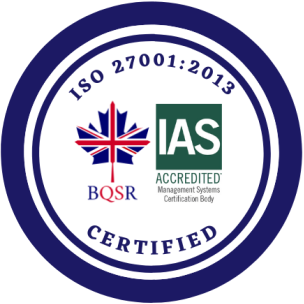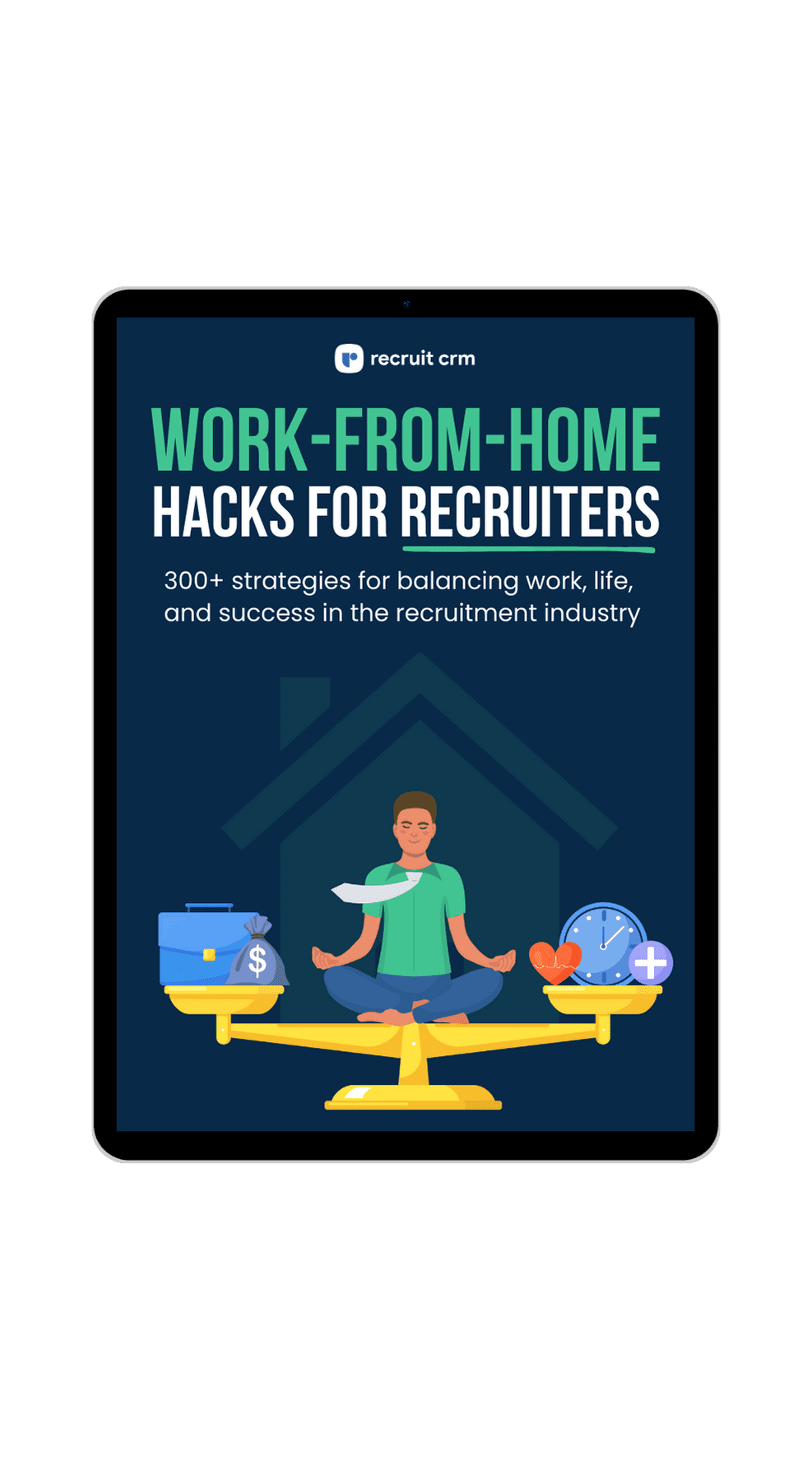With the escalating use of technology across the world, recruitment and talent acquisition is incomplete without the help of technology.
As a result, building a reliable recruitment tech stack has become paramount, with new recruitment solutions popping up almost every day.
According to a study by Monster, 64% of recruiters still believe they don’t have access to the right digital tools to make their job easier.
There is no one-size-fits-all recruitment solution or a universal tech stack for all search firms, as they all have unique hiring needs.
However, recruitment agencies can quickly pinpoint certain commonalities to identify the right recruitment technology.
By focusing on a few key areas, recruiters can build a recruitment technology stack that fits their needs, addresses challenges, and dramatically improves their hiring efforts.
Keep in mind that it takes more than just choosing best-in-class tech.
Your tools need to work well together, grow with your firm, and keep up with the rapidly changing staffing industry.
4 Key Advantages That the Right Tech Stack Can Deliver
- Faster business scaling
- Providing smarter sourcing avenues
- Getting hold of contacts faster
- Differentiating your recruitment brand
As the entire recruiting workflow will be dependent on your tech stack, make sure you create a solid foundation.
Read more: A recruiter’s ultimate guide to remote hiring.
6 Key Aspects of Your Remote Recruitment Tech Stack
1. Create a Technological Base
Any recruiter will say that a high-quality Applicant Tracking System is essential in recruitment processes.
Choosing a reliable Applicant Tracking System will provide much more flexibility for recruiters by automating workflows and reducing a significant amount of time.
To create a solid technology backbone, investing in an ATS is crucial for managing your remote recruitment workflow.
Make sure you choose a robust recruitment software that easily integrates with other solutions.
For a remote working environment, make sure your recruitment software is mobile-friendly so you can work on the go.
There are countless options available if you’re looking for a reliable ATS.
To make your selection process easier, Recruit CRM offers a wide range of features to make your recruitment process smoother. It’s 100% customizable and comes with multiple integrations, simplifying a recruiter’s workflow to a great extent.
2. Sourcing & Screening Technology
The process of sourcing and screening candidates is the most crucial aspect of hiring—but it’s also the most time-consuming and challenging.
From endless interviews to wasted time on unqualified candidates, there are many ways technology in business can improve this stage.
Read more: How to use Recruit CRM’s Chrome Extension for sourcing candidates?
Fortunately, with a reliable tech stack, sourcing and screening can become a lot less complicated. Check out these must-have tools for optimizing the sourcing and screening stage:
- Resume Parser: Resume parsers help screen candidates by parsing large volumes of resumes for essential keywords and skillsets. This tool is handy for companies that engage in high-volume hiring, as they help automate the lengthy process of screening resumes manually. Today, most ATS’ come equipped with a resume parser.
- Sourcing Platforms: In the age of social recruiting, the pool of talent has grown exponentially. A wider talent pool doesn’t necessarily mean less time spent on sourcing. With such a broad range of talent, especially with remote hiring, sourcing the ideal candidate can seem overwhelming. Luckily, with job aggregator sites like LinkedIn, Indeed, and Monster—sourcing becomes a breeze with the availability of specific filtering options. If you are looking to target remote workers specifically, check out FlexJobs—a platform just for remote and hybrid jobs.
To make sourcing more effortless than ever, Recruit CRM offers a Chrome extension that allows recruiters to source candidates and clients from various platforms, including; LinkedIn, ZoomInfo, and Xing at the click of a button!
3. Communication Technology
The key to successful recruitment lies in your communication processes.
As a remote hiring team, maintaining consistent communication is vital for the success of your business and maintaining a positive rapport with clients and candidates.
Today, candidates are treated as customers; therefore, make sure you rely on your tech stack to deliver the best possible experience for your candidates.
Lookout for technology that is mobile friendly as 89% of candidates think mobile devices play a critical role in the job-hunting process.
- Video Interviewing Platform: With increasing remote hiring, video interviewing is being touted as one of the most influential modern recruitment techniques. Video interviewing tools provide the best candidate experience, reducing scheduling conflicts, costs, and hiring time. By now, everyone is aware of video interviewing platforms like Zoom, Skype, and Google Meet, but have you heard of video interviewing tools equipped with AI? Platforms like HireVue integrate AI and psychological testing to bring the highest ROI for recruiters and reduce time spent on hiring.
- Remote Collaboration Tools: Effective collaboration becomes vital for hiring teams in a remote working environment. Platforms like Slack, Asana, and Basecamp can help remote hiring teams stay in the loop through a single space for sharing data, calling, and messaging to interact and communicate more efficiently. In addition, platforms like Basecamp and Asana help keep all your tasks and projects organized—keeping your hiring team as productive and efficient as possi
ble!
4. Recruitment Marketing
Recruitment marketing tools help advertise job openings, candidate engagement, and nurture relationships.
These tools have social recruiting and candidate relationship management capabilities and are typically used to help build talent pipelines as agencies flourish.
A reliable recruitment marketing tool can help optimize employer branding on career sites, help track candidates and facilitate employee referrals.
A CRM tool is an absolute must-have for a recruitment tech stack. Analysts believe that CRM tools could handle 70-80% of recruiting processes.
Communication and relationship nurturing are the base of recruitment, which is precisely what a CRM helps accomplish! Many ATS’ come equipped with a CRM tool—including Recruit CRM.
In fact, Recruit CRM offers several beneficial features for recruitment marketing, including; client management, a customizable deals pipeline, calendar integration, and a single place to view your communication flows.
5. Candidate Assessment
If you’re hiring remotely, consider using online skills assessment tests to assess a candidate’s hard and soft skills objectively. With the rise of remote hiring, online candidate assessment tests have become an integral part of the hiring process.
There are many different candidate assessments ranging from personality screening, psychometric testing, cognitive ability, skills, and technical assessments.
Read more: Top 6 skills you should look for in remote new hires.
Vervoe is an excellent choice if you’re on the lookout for a candidate assessment tool.
This tool provides unique anti-cheating features, comes with integrations, and its AI is powered by machine learning algorithms that analyze human behavior.
As a result, online candidate assessments are ideal for accurate results, free from human bias. These assessments are also entirely automated—leaving recruiters with much more time to focus on other tasks.
Read more: How can recruiters assess candidates accurately?
6. Remote Onboarding
A great onboarding experience is essential for employee retention and satisfaction.
It becomes all the more important for remote hiring so that new hires can easily transition into remote work.
The initial days of a new job involve new guidelines, paperwork, and account setups, which can be a barrier when easing new hires into their roles.
According to Glassdoor, an effective onboarding experience has improved new hire quality by 70%.
Consider implementing an onboarding software to automate the onboarding process.
Onboarding software allows recruiters to automate the onboarding stage, giving employees a smooth and structured start to their new roles.
Read more: Provide an unforgettable remote candidate and client experience in just 6 steps!
If you’re looking out for onboarding software, ClickBoarding delivers an easy onboarding solution that helps hiring staff manage forms and onboarding tasks efficiently—helping retain new hires.
This tool uniquely blends a great employee experience and onboarding tasks into a more flexible and straightforward solution.
Creating a reliable tech stack for remote recruitment can seem complicated at first, but the proper selection of tools can significantly accelerate your hiring efforts.
Read more: Are you doing remote hiring correctly?




